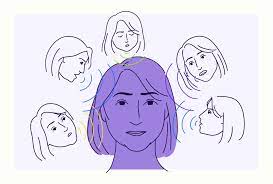Case Study Martha Krauntz Comprehensive Nursing Paper Sample
Learning Issues
Cold Symptoms
- The reasons behind her ears hurting without a cold in her previous flight.
- Does Vitamin C and Echinacea relieve cold?
- If so, how much should be prescribed?
- Laboratory results of the cold symptoms.(Case Study Martha Krauntz Comprehensive Nursing Paper Sample)
- Additional ear tests following previous pain during her flight.

Interpretation of Cues, Patterns, and Information
- The patient has a family history of hypothyroidism, increasing her chances of getting cold symptoms (Wassner, 2020).
- The patient is female, which increases her risk for hypothyroidism. According to Chiovato et al. (2019), women are ten times more likely to have thyroid disorders than men. One reason behind this is that autoimmune responses are triggered, especially among females.
- The patient has had two previous hospitalization due to uncomplicated childbirth and has erratic and light periods, which could be symptoms of hypothyroidism.
- The patient uses IUD as a birth control method which may affect the thyroid. According to Ettleson and Bianco (2020), being on birth control methods, the progesterone and estrogen inside the IUD or pills can affect the thyroid binding proteins by increasing them.
- (Case Study Martha Krauntz Comprehensive Nursing Paper Sample)
- The patient has normal vital signs, including temperature, respiration, pulse oximetry, and pulse.
Differential Diagnosis
- Hypothyroidism E03.9
- Sinus Infection J01.90
- Rhinorrhea J34.89
Diagnostic Options
- Conduct a thyroid-stimulating hormone (TSH) test, a blood test to diagnose hypothyroidism. Conducting a blood test will help determine if the patient’s thyroid glands are functioning appropriately by measuring the amount of thyroid hormones in the blood.
- (Case Study Martha Krauntz Comprehensive Nursing Paper Sample)
- Specifically, the TSH test will help assess any thyroid hormone deficiency. If the TSH levels are abnormal, thyroxine (T3) and triiodothyronine (T4) tests are required to evaluate the exact problem. According to Chiovato et al. (2019), an adult’s normal thyroid hormone test range should be 0.4-0.5 mlU/mL. Nonetheless, the normal range for T3 thyroxine should be 5.0-11.0 ug/dL, while T4 levels should be 100-200 ng/dl (Ettleson & Bianco, 2020).
- (Case Study Martha Krauntz Comprehensive Nursing Paper Sample)
- Conduct additional blood tests, including;
- Thyroid antibodies- these tests can help identify the different types of autoimmune thyroid conditions. Specifically, conduct microsomal antibodies, thyroglobulin antibodies, and thyroid receptor antibodies tests (Ettleson & Bianco, 2020).
- Calcitonin- This blood test helps to diagnose C-cell hyperplasia.
- Thyroglobulin- This blood test helps to diagnose any thyroid inflammation.
- Conduct an ear test using a pneumatic otoscope to diagnose an ear infection.
- Conduct a physical examination for acute sinusitis by assessing the symptoms presented by the patient. This may also include checking for face and nose tenderness.
- Other tests may include;
- CT scan of the nasal areas to check for abnormalities or suspected complications.
- Lab test on nasal and sinus samples to assess for any infection.
- (Case Study Martha Krauntz Comprehensive Nursing Paper Sample)
- Nasal endoscopy, where an endoscope is inserted with a fiber-optic light through the nose to allow visual inspection of sinuses.
(Kim et al., 2019).
Final Diagnosis
The final diagnosis is hypothyroid. The patient presents cold symptoms, including copious, clear to yellow nasal discharge, sneezing, head stuffiness, occasional mild headache, and mild cough. Additionally, she is on IUD and experiences irregular periods. Although she denies having ear pain, dental pain, or fever, she has a medical history of ear pain with no cold in her last flight. These symptoms indicate that the patient has an autoimmune response that makes her immune weaker to bear a cold. The patient’s mother has also been diagnosed with the condition, making her prone to having it. I have ruled out sinuses and rhinorrhea because the patient does not present fever, congestion, or pressure around the nose and nosebleeds.
- (Case Study Martha Krauntz Comprehensive Nursing Paper Sample)
Therapeutic Options
Pharmacological
- Administer levothyroxine or Synthroid orally to restore hormone levels.
Non-pharmacological
- Administer vitamin B-12 supplements to repair the damages caused by hypothyroidism.
Educational
- Educate the patient on the causes and effects of hypothyroidism.
- Discuss the need to adhere to treatment.
- (Case Study Martha Krauntz Comprehensive Nursing Paper Sample)
- Instruct the patient on the dosage for self-medication.
Social Determinants of Health
- (Case Study Martha Krauntz Comprehensive Nursing Paper Sample)
- Eat healthy diets that include vegetables, fruits, lean proteins, healthy fats, and whole grains.
- Exercise Regularly
(Chiovato et al., 2019).

Follow Up
The patient should return to the clinic six weeks after the initial treatment to check thyroid levels and change treatment when needed. However, if the symptoms persist, the patient can revisit sooner.
- (Case Study Martha Krauntz Comprehensive Nursing Paper Sample)
References
Chiovato, L., Magri, F., & Carlé, A. (2019). Hypothyroidism in context: Where we have been and where we’re going. Advances in Therapy, 36(S2), 47-58
- (Case Study Martha Krauntz Comprehensive Nursing Paper Sample)
. https://doi.org/10.1007/s12325-019-01080-8
Ettleson, M. D., & Bianco, A. C. (2020). Individualized therapy for hypothyroidism: Is T4 enough for everyone? The Journal of Clinical Endocrinology & Metabolism, 105(9), e3090-e3104. https://doi.org/10.1210/clinem/dgaa430
Kim, Y., Lee, K. J., Sunwoo, L., Choi, D., Nam, C., Cho, J., Kim, J., Bae, Y. J., Yoo, R., Choi, B. S., Jung, C., & Kim, J. H. (2019). Deep learning in the diagnosis of maxillary sinusitis using conventional radiography. Investigative Radiology, 54(1), 7-15
- (Case Study Martha Krauntz Comprehensive Nursing Paper Sample)
. https://doi.org/10.1097/rli.0000000000000503
Wassner, A. J. (2020). Unraveling the genetics of congenital hypothyroidism: Challenges and opportunities. The Journal of Clinical Endocrinology & Metabolism, 105(9), e3464-e3465(Case Study Martha Krauntz Comprehensive Nursing Paper Sample). https://doi.org/10.1210/clinem/dgaa454

